Best small SUVs
Australians love small SUVs. There are few areas of the car market with as many options, let alone as many options taking different approaches to achieve the same outcome.
Most of these cars are a similar length to a Volkswagen Golf or Ford Focus, but generally have a taller ride designed to make them easier to get into and out of.
Plenty of drivers also prefer sitting higher off the ground, while the black body cladding on most small SUVs makes them look a bit tougher than a conventional hatchback.
If you want more space, it’s worth looking at a mid-sized SUV or a large SUV. There are also plenty of small hatchbacks on sale with similar amounts of boot space and rear legroom, and they’re generally less expensive than an SUV.
If you’re after something a bit smaller, consider a light SUV or a micro hatch.
There are a few things to look out for. Although these cars are billed as SUVs, they aren’t high-riding off-roaders. Some small SUVs are available with all-wheel drive, but they’re not able to go far on mud or rocks.
Instead, their all-wheel drive systems are meant to offer a bit more traction on wet roads without ruining fuel economy.
Here are five of our favourites, in no particular order.
Kia Seltos
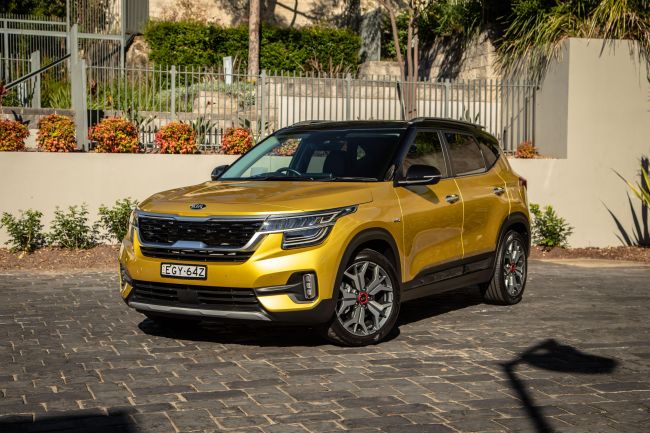
Pros: Spacious interior, turbo engine option, comfortable ride
Cons: Halogen headlights on lower models, optional safety features, no rear vents
Boot space: 430L
The Kia Seltos is a small SUV on paper, but it packs an impressive amount of space into its boxy body. It’s one of the biggest cars in its class, and is a good compromise for buyers who want a big boot in a city-friendly SUV.
Kia backs the Seltos with a seven-year, unlimited-kilometre warranty.
Two engines are offered, starting with a 2.0-litre, naturally-aspirated four-cylinder petrol making 110kW and 180Nm. A 1.6-litre turbocharged four-cylinder is also available, with 130kW and 265Nm.
Mazda CX-30
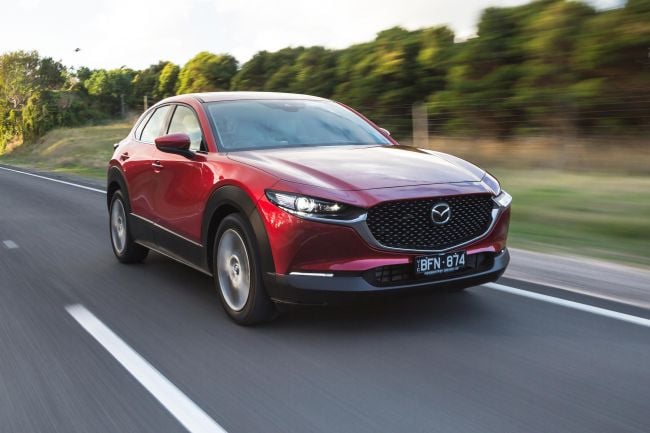
Pros: Luxurious interior, refined drive, strong standard equipment list
Cons: No turbocharged engine, tight back seat, relatively small boot
Boot space: 422L
The Mazda CX-30 is one of the most grown-up small SUVs on the market. The interior is luxurious, especially in higher-end models, and even the base model comes with a long list of standard inclusions.
Technology nerds and early adopters will be interested in the X20 Astina, which is powered by a petrol engine capable of operating like a diesel in certain conditions to save fuel. At the bottom end of the range, Mazda will still sell you a manual.
The CX-30 is backed by a five-year, unlimited-kilometre warranty.
Four engines are on offer, including a 2.0-litre four-cylinder petrol (114kW/200Nm), a 2.5-litre four-cylinder petrol (139kW/252Nm), and a 2.0-litre supercharged four-cylinder plus 24V mild-hybrid system (132kW/223Nm) dubbed X20.
New for 2022 is the G20e engine from the MX-30, with 114kW and 200Nm. It’s supported by a 24V mild-hybrid system.
Skoda Kamiq
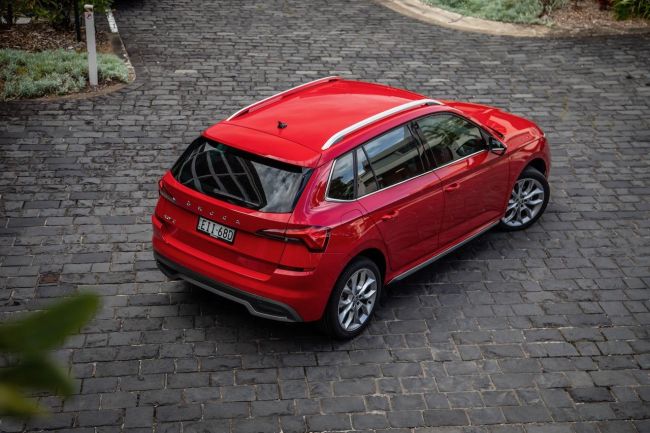
Pros: Good value with no options, characterful engines, spacious interior
Cons: Missing blind-spot as standard, transmission can be awkward, options are expensive
Boot space: 400L
The Kamiq is smaller than the Seltos and CX-30, but it’s a seriously smart little car. Not only does it have a massive boot, it drives like a bigger car on the highway.
Skoda backs its cars with a five-year, unlimited-kilometre warranty.
There are two engines on offer, a three-cylinder 85TSI and a more powerful four-cylinder 110TSI. The 85TSI (85kW/200Nm) is more than enough for life in the city, but the more powerful 110TSI (110kW/250Nm) is better for highway driving.
Hyundai Kona
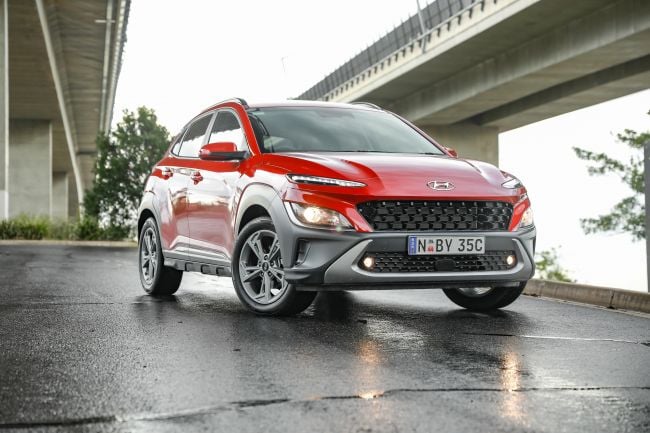
Pros: Good in-car technology, fun to drive, peppy performance
Cons: Tight back seat, intrusive driver assists, gets expensive at the top end
Boot space: 374L
The Kona is a small SUV stalwart, and was treated to an update in 2020. It’s one of the smaller cars on our list here, and drives like an overgrown hatchback rather than a lumbering bus.
Two engines are offered in the normal range, starting with a 2.0-litre, naturally-aspirated four-cylinder petrol making 110kW and 180Nm. A 1.6-litre turbocharged four-cylinder is also available, with 130kW and 265Nm.
There’s even a powered-up Kona N version, with a 206kW engine good for a 100km/h sprint time of 5.5 seconds. That makes it hot-hatch fast.
The Kona is backed by a five-year, unlimited-kilometre warranty.
Hyundai is unique in offering an all-electric take on the Kona, although it’s significantly more expensive than the petrol. Pricing starts at $54,500 before on-roads for a car with a claimed 305km of range.
Toyota C-HR
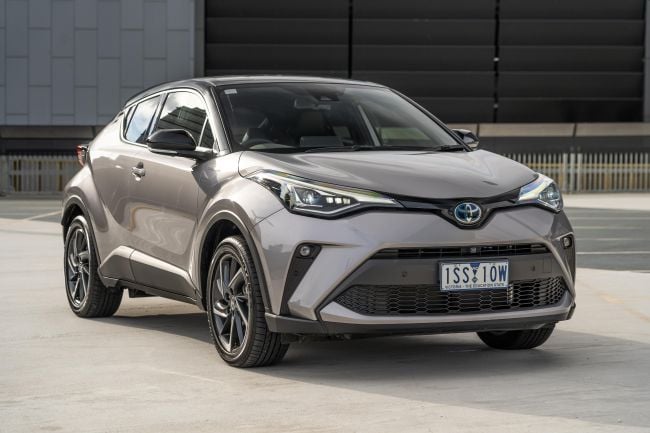
Pros: Hybrid option, fun-to-drive, unique interior design
Cons: Lacking grunt, poor visibility, bigger RAV4 is similar money
Boot space: 318L
Toyota is known for practical, sensible cars, but it can get a bit funky when it wants to. The C-HR is pitched as the sporty Toyota SUV, with an edgy design and interior that’s all about angles.
Two engines are available in the C-HR. The range opens with a 1.2-litre turbocharged four-cylinder petrol engine (85kW/185Nm), but the GR Sport and Koba are both available with a 1.8-litre hybrid (90kW).
Toyota offers a five-year, unlimited-kilometre warranty, although coverage on the powertrain is extended to seven years if you service within the brand’s dealer network.
The C-HR was the first Toyota to be offered with a style-oriented GR Sport trim level. It sits alongside the Koba at the top of the range, and gets unique wheels, leather-accented seats, and LED lighting all around.
